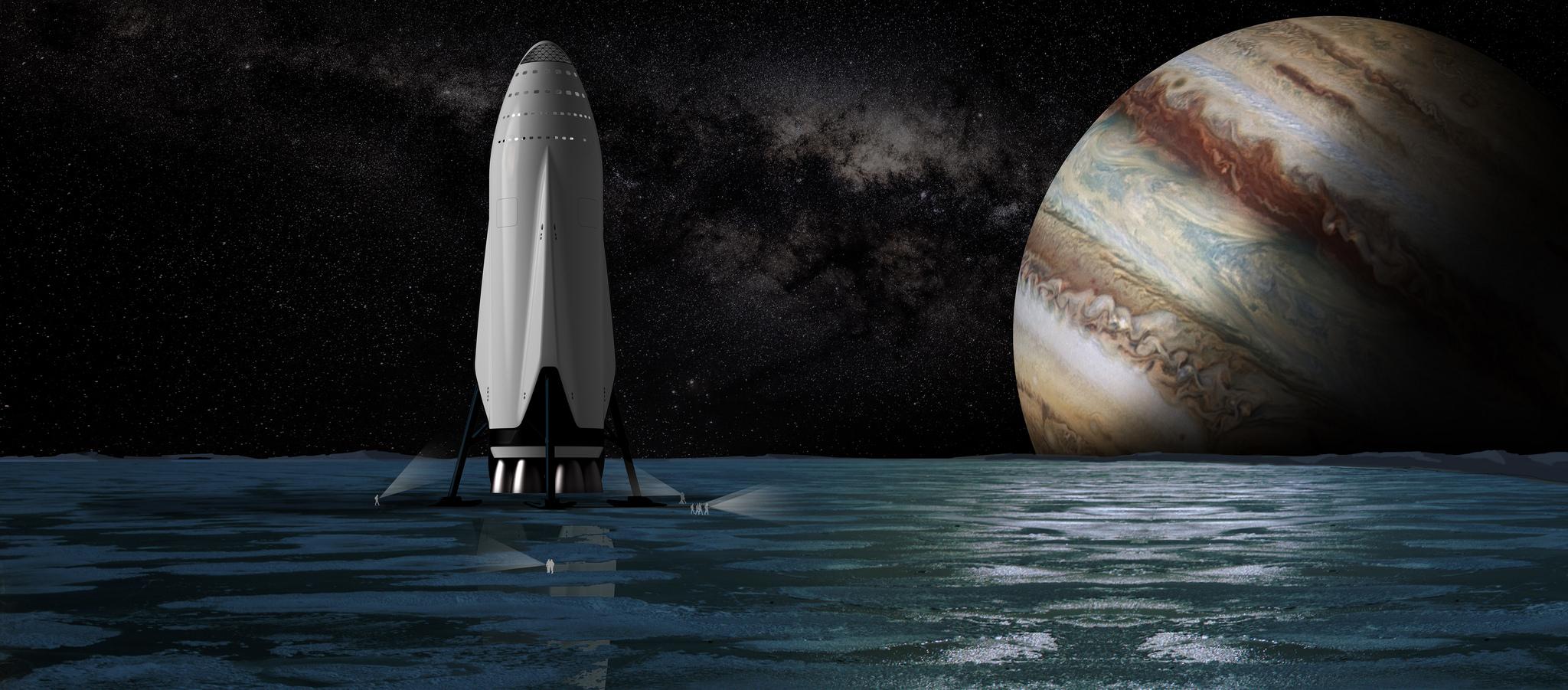Elon Musk’s Mars mission just beginning of making humanity into an ‘multi-planetary species’, billionaire says
Mr Musk hopes to get humans on Mars in six years. But from there we might be going to lots of other places

Your support helps us to tell the story
From reproductive rights to climate change to Big Tech, The Independent is on the ground when the story is developing. Whether it's investigating the financials of Elon Musk's pro-Trump PAC or producing our latest documentary, 'The A Word', which shines a light on the American women fighting for reproductive rights, we know how important it is to parse out the facts from the messaging.
At such a critical moment in US history, we need reporters on the ground. Your donation allows us to keep sending journalists to speak to both sides of the story.
The Independent is trusted by Americans across the entire political spectrum. And unlike many other quality news outlets, we choose not to lock Americans out of our reporting and analysis with paywalls. We believe quality journalism should be available to everyone, paid for by those who can afford it.
Your support makes all the difference.Elon Musk’s ambitious mission to Mars might not really be about going to Mars at all.
The huge plan – expected to cost tens of billions of dollars and get people on the Red Planet by 2022 – is just the first step in making humanity into an “interplanetary species” so that it can avoid getting wiped out, he said.
There are two “fundamental paths” facing our species, he said at an event in Guadalajara that laid out his vision for the future of space travel.
“One is that we stay on Earth forever and then there will be an inevitable extinction event,” he said. “The alternative is to become a spacefaring civilisation, and a multi-planetary species.”
Initially, that will take the form of 1,000 passenger ships flying to Mars within the next century. Those people will colonise Mars – exploiting its harsh environment to grow the things they need and make the materials that they require to journey back.
But Mr Musk hopes that, eventually, they won’t actually have to journey back. A combination of the dying Earth and the ever reducing cost of space travel will mean that we will be able to make other planets into our home, he said.
"I think Earth will be a good place for a long time” Mr Musk said at the event. “But the probable lifespan of human civilisation will be much greater if we're a multiplanetary species.”
Doing that will require working on the Mars Colonial fleet – a set of ships and rockets that will carry people to the Red Planet. Recently it test fired a powerful new rocket engine called Raptor that will be able to carry people all the way to Mars, and hopefully come back to be re-used.
But those same systems could eventually take people to other places, like the moons of Jupiter, he said. Once the system is made – if the rocket, spaceship, fueling tanker and propellant depots are all in place – then people will be able to move around the Solar System using the tools.
"If you have all of those four elements you can actually go anywhere in the Solar System by planet hopping or moon hopping," Musk said. "By establishing a propellant depot in the asteroid belt or on one of the moons of Jupiter, you can make flights from Mars to Jupiter, no problem."
At the event, he showed computer generated images of how the system might look in various significant parts of the universe – flying past the icy moons Enceladus and Europa, and journeying near Saturn’s rings.
That might look something like the system that Mr Musk envisions for his Tesla cars, on Earth. Each of those might have a journey time that is limited by their battery – but by building a network of charging stations around the world, people will be able to get much further.
Join our commenting forum
Join thought-provoking conversations, follow other Independent readers and see their replies
Comments